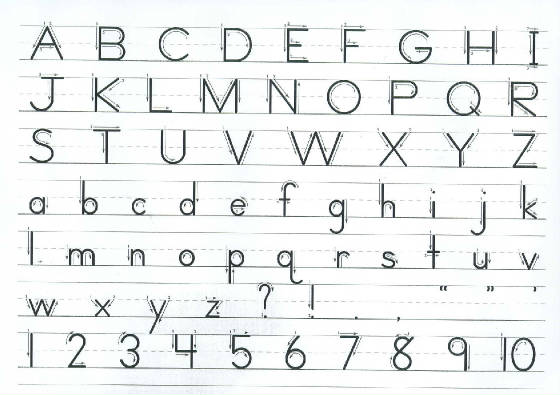|
What is writer's workshop?
It's our favorite time of the day!! We absolutely love writer's workshop. Our workshop starts out with
a mini lesson that focuses on something that good writer's do. Often we read a literary work that models what we are learning
about. At times a puppet helps present the lesson. Sometimes we do an interactive write or group edit a piece. Regardless
of the method of presentation, one thing remains constant. After every mini lesson writers get to write! Writers choose their
own topics, making their writing more meaningful. The format includes think time, write time, conferring, editing, publishing,
and sharing.
During our sharing we often help our classmates edit their work using our document camera. Kids love this. I love the
passion that the learners develop for writing.
click here to play video

How can you help your blossoming writer?
Young writers move through a series of writing stages. The earliest writers scribble. Writer's then
move towards creating identifiable pictures and adding random letters. From there writer's begin to notice sound/letter correlations
and begin to include some of the sounds they hear. As writers develop they will include more and more of the sounds they
hear. Eventually they will progress to a transitional stage where they begin to write high frequency words correctly while
still relying quite heavily on invented spelling for unknown words. The final stage is the conventional stage where most
age appropriate words are spelled correctly.
We often refer to student writing as "Kid Writing". I encourage learners to use their letter/sound schema to write words.
At this point it is not important that all words be spelled correctly.
We make use of the magic line as well. A magic line is a line inserted in place of a word which the child does not know
how to spell. This allows a child to continue their train of thought, rather than to derail because they can't spell a word.
When editing a piece it is not necessary to correct every spelling error. Listen to your child read his/her piece. After
listening offer to underwrite (write the conventional spelling under their writing). select several words to discuss with
your child. Talk about any sound patterns that can help them spell the words correclty.

Letter Formation Guide

|

